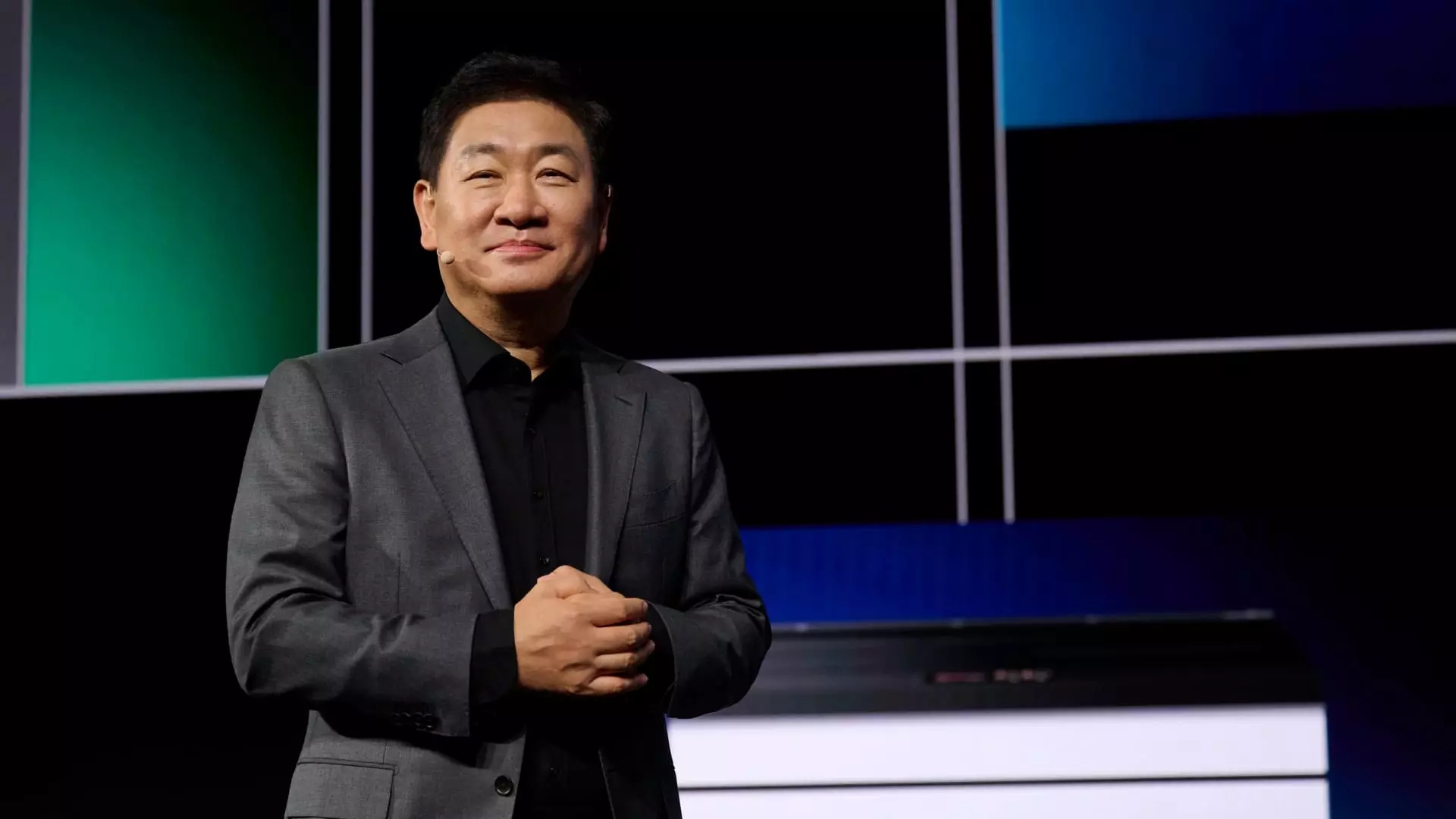In a bid to bolster its market position, Samsung Electronics is intensifying its focus on on-device artificial intelligence (AI). Jong-Hee Han, the CEO of Samsung, emphasized this strategy during a recent interview with CNBC, where he forecasted a growth rate of approximately 3% for the global consumer electronics market by 2025. As the leading manufacturer of smartphones and televisions worldwide, Samsung anticipates an even brighter outlook for its mobile services, predicting a growth margin of 4-5% for the current year. This ambition aligns with a broader commitment to incorporate smart technology across its appliance range, enhancing user experiences and solidifying the company’s reputation as an industry innovator.
Samsung’s initiatives involve the integration of AI capabilities within a variety of products, ranging from refrigerators to washing machines and robotic vacuums. The company has taken significant steps to empower its flagship smartphones, like the Galaxy S24 series, with capabilities such as real-time translation of foreign language calls. This commitment to innovation not only supports consumer convenience but also reflects a strategic pivot towards AI—as machine learning and intelligent processing components become increasingly vital in consumer electronics.
Amidst this ambitious growth strategy, Samsung faces formidable competition from Chinese tech giants like Huawei and Xiaomi. These competitors have managed to undercut prices while delivering technologically advanced devices, thus intensifying the competitive pressure. However, Han articulated that competition can have positive ramifications for Samsung; it encourages the company to enhance product differentiation through robust security measures and added convenience instead of merely competing on price. This insight underscores Samsung’s strategic focus on quality over cost, which may resonate well with consumers seeking trustworthy and advanced technological solutions.
In light of evolving market dynamics, Samsung announced a leadership restructure aimed at better positioning the organization for future growth. Jun Young-hyun, now co-CEO alongside Han, will oversee the semiconductor division. Samsung, once a powerhouse in memory chip production, now finds itself challenged by competitors such as SK Hynix in the vital high-bandwidth memory (HBM) sector—a necessity for AI developers like Nvidia. Such restructuring is indicative of the company’s recognition of the need for agile leadership in a rapidly changing marketplace.
Going forward, Samsung is poised to report its fourth-quarter forecasts shortly; these results are eagerly awaited by investors who are optimistic about a rebound in operating profit compared to the previous year. Preliminary estimates suggest an operational profit of around 8.2 trillion won ($5.6 billion), a marked increase from last year’s 2.8 trillion won. However, it’s notable that while performance may appear improved relative to last year, it remains lower compared to the nearly 9.2 trillion won from the preceding quarter.
Samsung’s performance has experienced noticeable volatility, illustrated by a dramatic 32% drop in its stock value over the past year—an alarming figure juxtaposed against the broader market trend. Nonetheless, Han reassured stakeholders regarding the “value-up” initiative aimed at enhancing shareholder returns, suggesting a methodical rollout of plans to stabilize and potentially grow stock value. This commitment signals to investors that Samsung recognizes the importance of fostering confidence among shareholders while also addressing the ongoing challenges posed by market competition.
Analysts remain watchful of Samsung’s strategic moves, particularly in light of proposed share buyback schemes aimed at enforcing stability to share prices. Despite some market hesitations regarding potential delays in securing Nvidia’s HBM chip approval and a languishing PC sales market, the general consensus remains cautiously optimistic.
Samsung Electronics is setting the stage for enhanced growth and innovation through strategic investments in AI and leadership restructuring. However, navigating competition and market fluctuations will be crucial as the company seeks to reclaim its standing in the memory chip sector while redefining its consumer electronics offerings. By focusing on secure, smart technology, Samsung aims not only to weather current challenges but also to thrive in the ever-evolving world of consumer tech.

